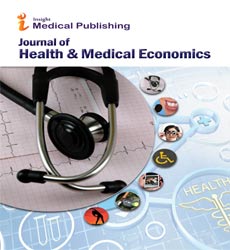Abstract
Knowledge Attitude & Practices about Oral Contraceptive Pills among Urban Women in Chhattisgarh- A Study Conducted in Urban Areas of Raipur
The paper presents the findings of a qualitative assessment which was conducted with the aim of exploring the practices, knowledge & attitude of married young women about oral contraceptive pills. The study also aimed to understand the factors which influence the uptake of OCP among married females. A quantitative study was conducted among females belonging to age group of 19-29 years. The data was collected through on ground activations conducted at beauty parlors located at urban areas by asking pre structured questions with females. The findings reveal that females had many myths & misconceptions related to use of OCP as a method of contraception. These myths & misconceptions were major reasons for low uptake of OCP as a chosen method of contraception. Reasons of not using OCP included problems of abnormal weight gain, failure to further conception, and deposition of pills in the stomach, lethargy & general illness due to consumption. The study concluded that there is a need to do innovative & focused IEC/BCC about oral contraceptive pills. There is also a need to address issues specific to myths on OCP, ensuring its ready availability & to popularize the positive impact that the OCP can have on females to increase the uptake of OCP as a preferred method of contraception so that females can fulfill their child bearing & reproductive health goals.
Author(s):
Mridula Pandey and Vijendra Katre
Abstract | Full-Text | PDF
Share this

Google scholar citation report
Citations : 210
Journal of Health & Medical Economics received 210 citations as per google scholar report
Abstracted/Indexed in
- Google Scholar
- China National Knowledge Infrastructure (CNKI)
- WorldCat
- Geneva Foundation for Medical Education and Research
Open Access Journals
- Aquaculture & Veterinary Science
- Chemistry & Chemical Sciences
- Clinical Sciences
- Engineering
- General Science
- Genetics & Molecular Biology
- Health Care & Nursing
- Immunology & Microbiology
- Materials Science
- Mathematics & Physics
- Medical Sciences
- Neurology & Psychiatry
- Oncology & Cancer Science
- Pharmaceutical Sciences

